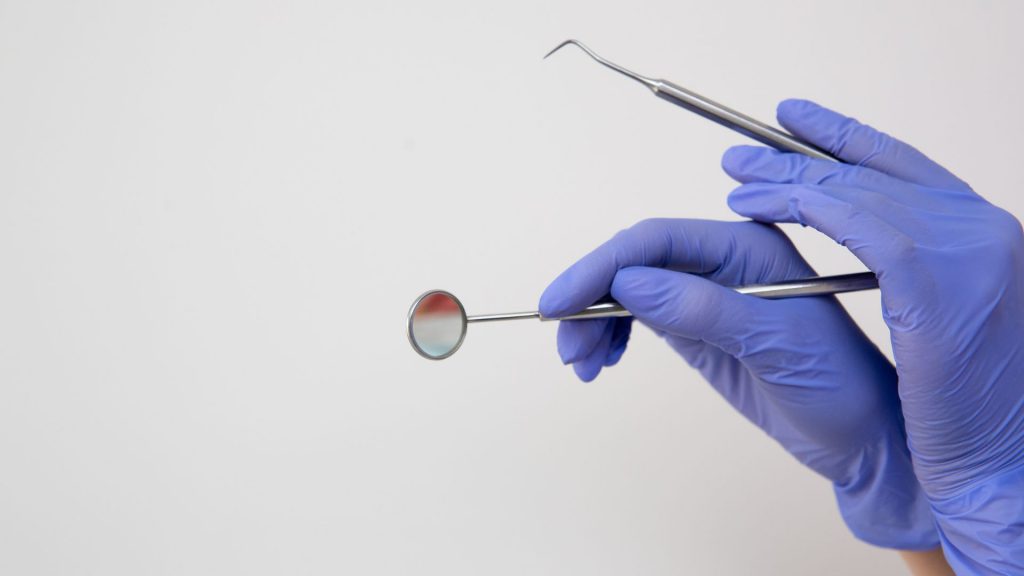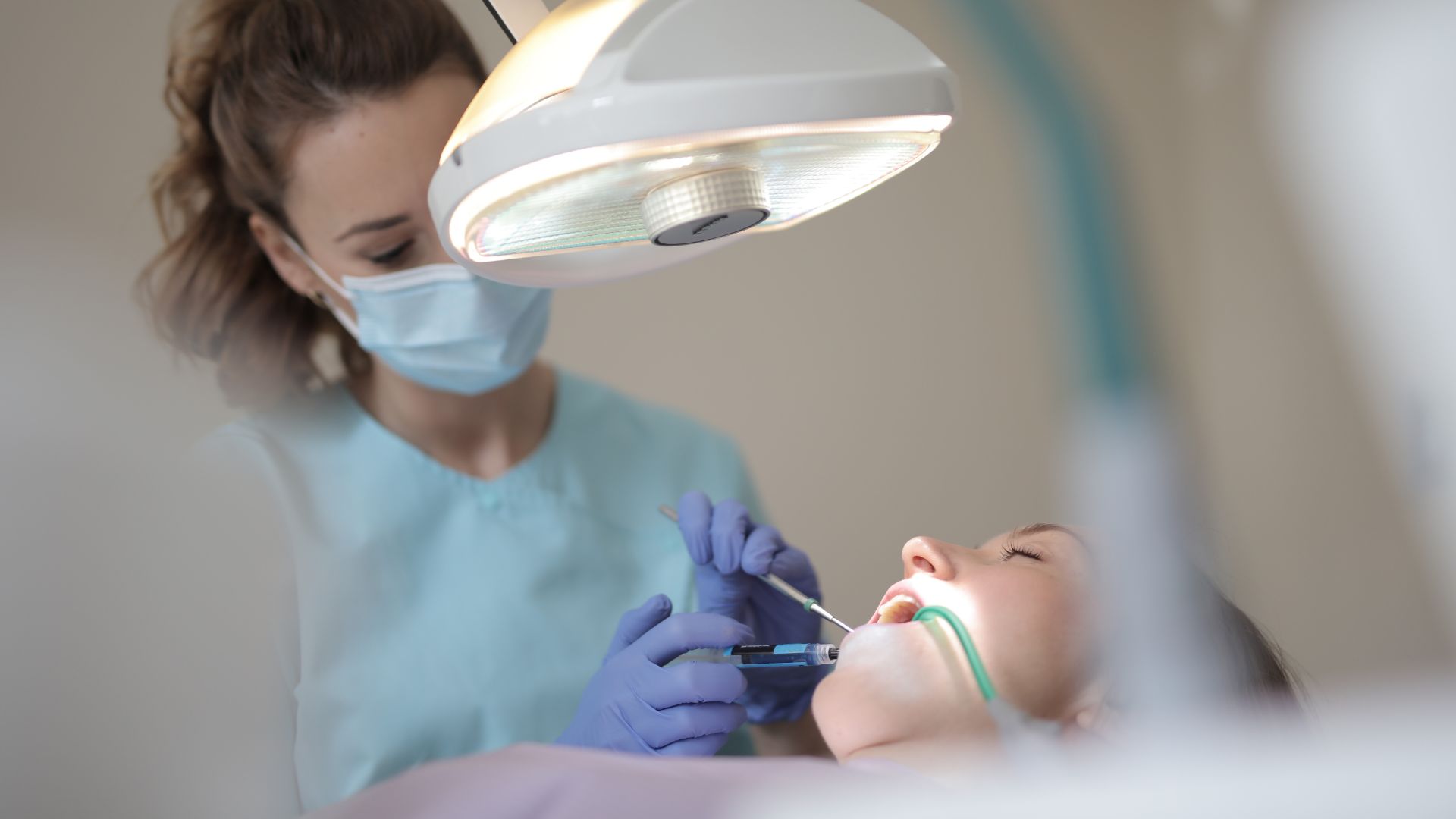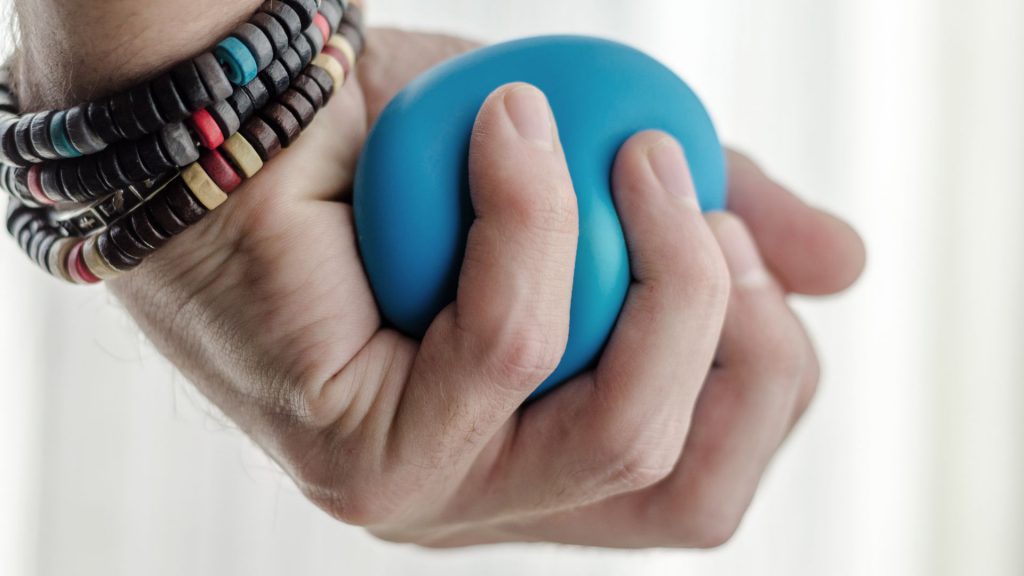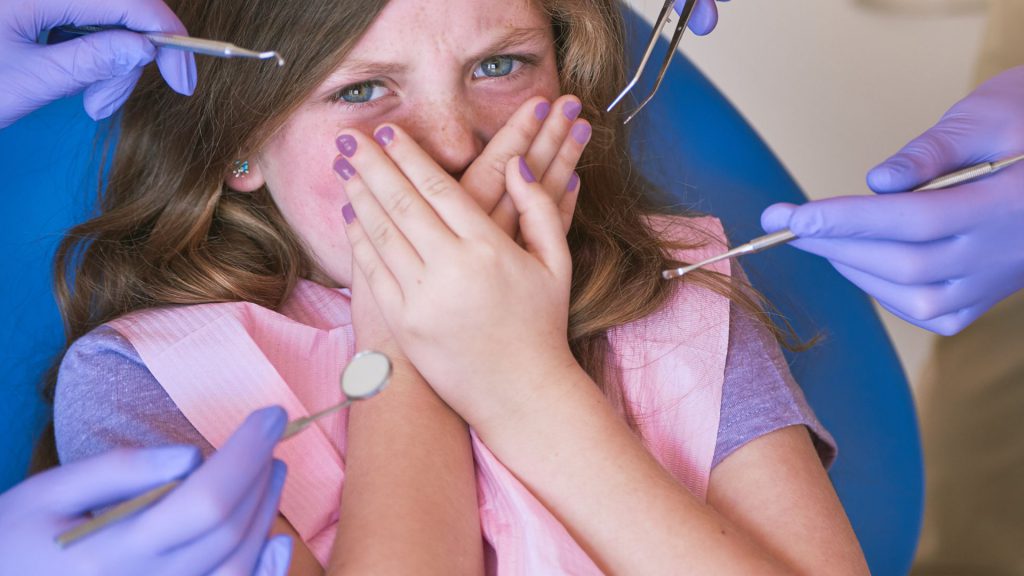Terrified of the Dentist? Tips for Coping with Dental Anxiety

If the thought of walking into a dental practice terrifies you, you’re not alone. A recent survey of 25,000 people by the Australian Dental Association found that of the people who’d delayed dental treatment in the last 12 months, 6% admitted fear of the dentist as the cause.
However the outcome for people plagued with anxiety is poor oral health – they end up only walking through the practice door when they have severe pain or a serious issue, making their dental fears even worse.
What’s Dental Anxiety?
Dental anxiety refers to an emotional or physical state of elevated fear of dental procedures. It can stem from previous traumatic dental experiences either as a child or an adult, a needle phobia or an aversion or sensitivity to pain. Then there are those suffering from poor oral health who only see the dentist when there’s a severe toothache.
Dr Kaejenn Tchia, a dentist in Darwin and President of the ADA in the Northern Territory, said: “Since graduating dental school, I’ve treated and managed a number of dentally anxious patients and over time have learnt many the following tools and strategies to help the patient manage their anxiety.
‘It’s helpful to know that dentists often have numerous tools and strategies to support anxious, nervous or terrified patients to help them access dental care by creating a safe, supportive environment so the best outcomes can be achieved for not only the patient’s dental health but also their overall wellbeing. This approach also goes a long way to ensuring they will come back for future visits.”

The Tools to Support Patients with Dental Anxiety
Here are Dr Tchia’s tried and trusted methods for helping anxious patients.
Building trust and a sense of empowerment
If it’s your first time to the dentist, the clinician will aim to establish rapport and trust as a lack of trust presenting as fear stemming from a previous lack of trust in dentists is one of the main reasons for dental anxiety. Unless you’re in significant pain, the dentist will probably spend the first appointment just doing a consult to hear about what your previous dental experiences have been like, and what your goals are with dental treatment.
Once a rapport is established and expectations of treatment communicated, the dentist will reinforce that they’re there to promote comfortable experiences as much as possible, in the hope of replacing any their previous bad experiences with positive ones. “This process is hopefully empowering the patient to come back for more regular dental care and treatment,” he said.
One of the things anxious patients fear the most is a lack of control or helplessness, which can make them feel overwhelmed. Dentists have a strategy for overcoming this.
Dr Tchia says: “I always preface to my patients that they’re always in control of the appointment and if at any point they need me to stop, they simply communicate by putting their right hand up and I will always stop in a safe manner. This is something all dentists do these days; it helps the patient feel they can exert some influence over proceedings which helps them relax.
“I also reassure the patients that if at any point in the procedure they feel uncomfortable or overwhelmed, they can let me know so I can make changes can try to improve their experience during the appointment.”
Keeping you informed throughout
It’s important to let anxious patients know what’s being done next, starting with the chair going back and the bib and goggles going on, right through to the chair coming back up at the end of the procedure and the rinse moment.
For example, when it comes to receiving a local anaesthetic typically used for fillings and tooth extractions, it’s important patients know when the anaesthesia is coming and what they can expect to feel during and after. Dentists are all too aware that plenty of patients don’t like to see the needle so by communicating these steps, there are no surprises and they can close their eyes during this step.

Guided meditation or dental hypnosis
This is a great non-pharmacological behaviour management tool which aims to get the patient to a more relaxed altered state of consciousness. In this state, the patient is induced into a state of calm and more receptive to suggestions. Importantly, the responses during this state are elicited by the patient’s own will, not the practitioner’s.
In many cases dentists already practice some form of hypnosis through using the right language, intonation and words to provide positive reinforcement and a relaxed patient state.
“One exercise I do with patients is to get them focused on their breathing, taking deep slow breaths in and out to bring down their heart rate and induce a state of calm.
“Then using a calm, slow, almost hypnotic rhythm and tone, I get the patient to visualize a place they normally feel relaxed in, giving prompts to what they can see, hear and feel. As they breathe deeper in and out, guide them to slowly relax their shoulders and sink deeper into the chair.
“Importantly, the patient is fully conscious throughout the entire process and they can indicate if they want the procedure to stop at any time.”
Stress balls
These can be an effective tool for patients to hold and squeeze as a coping mechanism. They can normally be bought online and the dentist may make suggestions about when the nervous patient should squeeze it during the appointment.

Also dental assistants are also often trained to hold the patient’s hand or provide a reassuring hand on the shoulder during administering of local anaesthetic or an extraction, which can also be a great support.
Patients can also bring in their own earphones or headphones and listen to their music to help calm them. Other tactics include playing with a bag of beans or coins, watching a TV screen above the chair if available – or going to their ‘happy place’ like a past happy holiday or a favourite location which instils a feeling of peace and calm.
Despite all these things
There are some patients who still require pharmacological agents to help them reduce their anxiety. These include Relative Analgesia (RA) in the form of nitrous oxide or oral anxiolytics, which is also known as minimal sedation. Here the person will be very relaxed and still conscious enough to be awake and able to answer questions and follow instructions. Another option available for moderately anxious patients is the use of Conscious or Intravenous (IV) sedation, which is usually carried out by an anaesthetist or dentist with relevant qualifications in this area.
At the next level in more severely anxious patients, a General Anaesthetic (GA) may be required in which treatment is provided in a hospital operating theatre or day surgery setting. Here, a GA renders the patient unconscious so dental treatment can be conducted in a safe way without patient anxiety influencing treatment.
Book extra time
If you let the practice manager or receptionist know that you’re anxious, it’s likely that they will book a longer appointment so the dental team will have plenty of time to coach the anxious patient through the appointment. This also ensures the dental team has adequate time looking after you.
By dentists intentionally creating a calm, supportive environment, patients can enter a state of relaxation that allows them to have dental procedures stress-free and provide the best outcomes for their dental health.

A Word About Children
Fear of the dentist in children needs to be addressed early as this can continue into adulthood and be a significant predictor of whether they become an adult who avoids dental trips.
Children learn to be anxious by experience – through a traumatic event or vicariously from their parents, with the parent’s own dental fears being learnt by the child. That’s why first dental visits for a toothache requiring emergency treatment can be traumatizing causing the child to be dentally anxious – and also why dentists always recommend bringing children for their first visit once their first tooth appears, so they get used to the experience, the sight of the dentist, the smells and the sounds. Setting up the first dental visit as a fun and exciting thing to do establishes early trust and rapport for not only the child, but also the parents.
For the first dental visit, parents are encouraged to put the child baby/toddler on their laps and cuddle them during the visit to help them feel more safe and secure.
How To Help the Anxious Child
- Parents can talk with their child about the dentist at home, and role play can be a great way to understand what the dentist does.
- Listen and talk to the child about their concerns about dental care.
- Parents are encouraged not to show fear or use words that indicate there is something to be fearful of. For example, avoid the word ‘brave’ – children don’t need to be told to be brave as that indicates that there’s something to be afraid of.
- If the child has a favourite toy, teddy bear or blanket that elicits a feeling of comfort and security, the child should bring this with them.
- Positive reinforcements by rewarding children for good behaviour and following instructions at a dental appointment are encouraged, though these rewards should ideally not be in the form of sugary foods or drinks as this can increase the risks of dental decay. Perhaps a new toy or book would provide a good reward.
Dr Kaejenn Tchia is a dentist working in a corporate private practice in Darwin. He is the President of the Australian Dental Association NT Branch. He is also a member of the Colgate Advocates for Oral Health. The Colgate Advocates for Oral Health Community is a group of dental and oral health professionals who have a passion for preventive oral health practice. They aim to increase awareness on a wide range of dental health topics with Australian families and the next generation of dental professionals. This is done through the sharing of their knowledge and experience in the profession.
Read the latest articles from the Colgate Advocates for Oral Health by following #AdvocatesForOralHealth on Instagram, Facebook, LinkedIn and TikTok.













